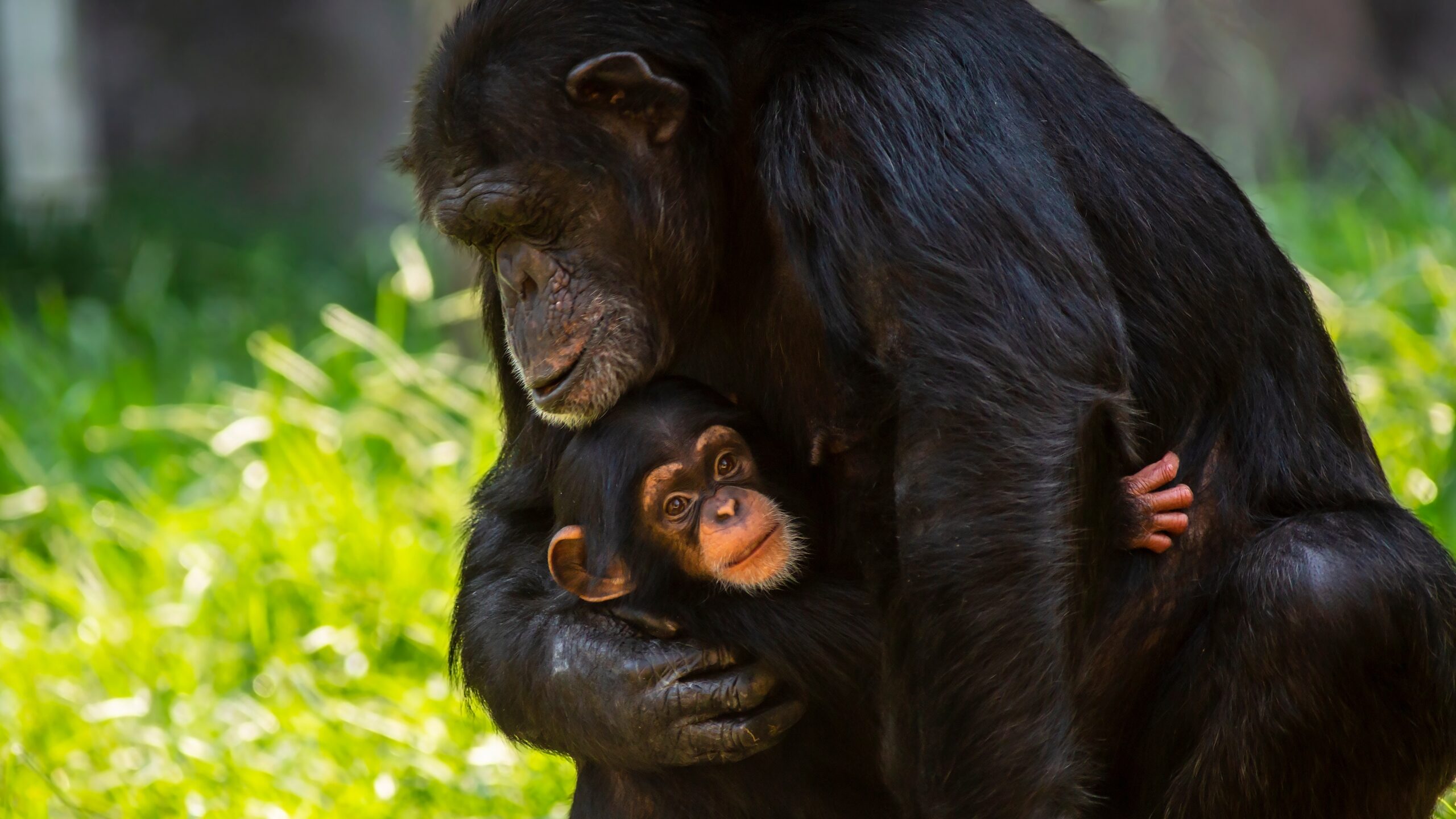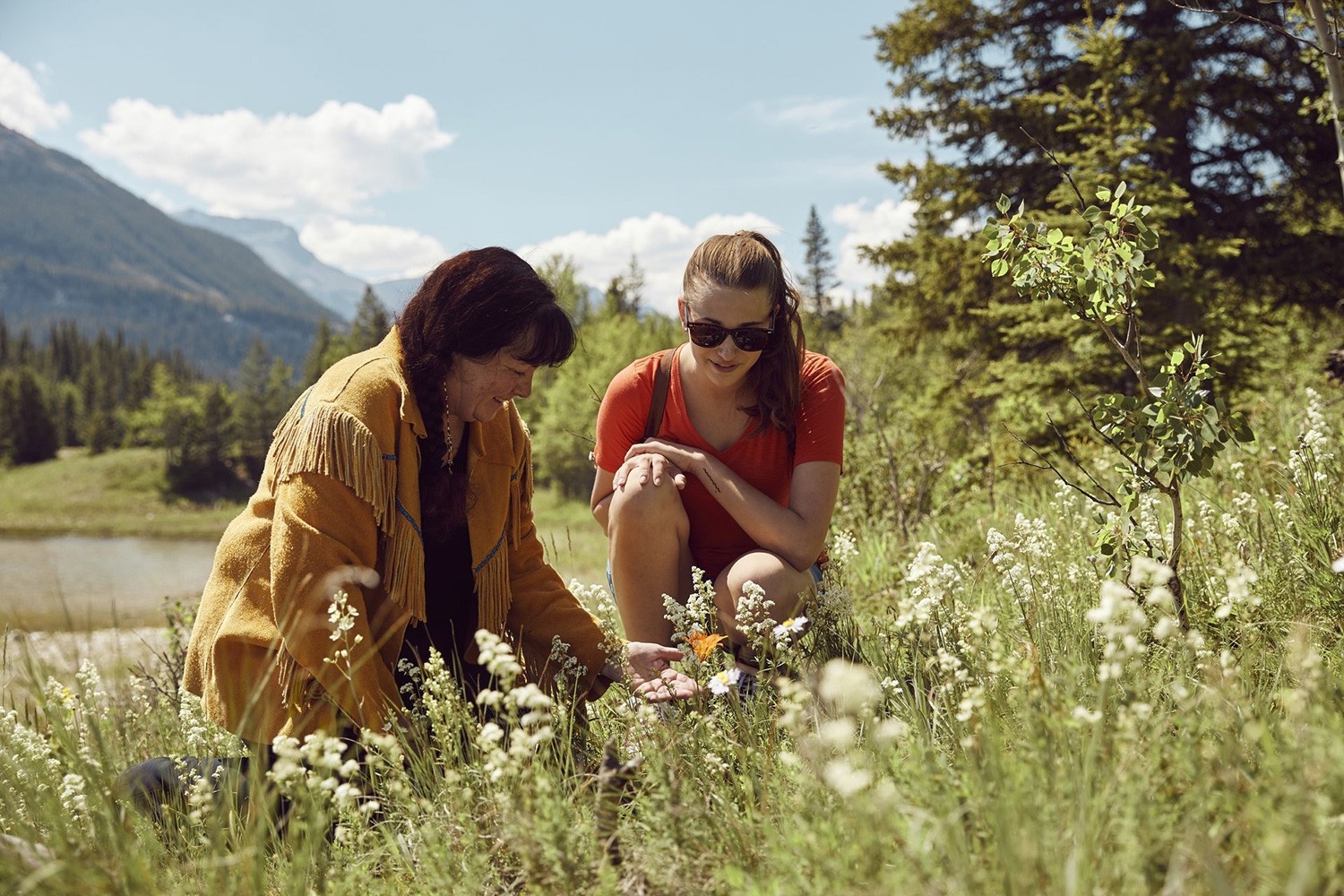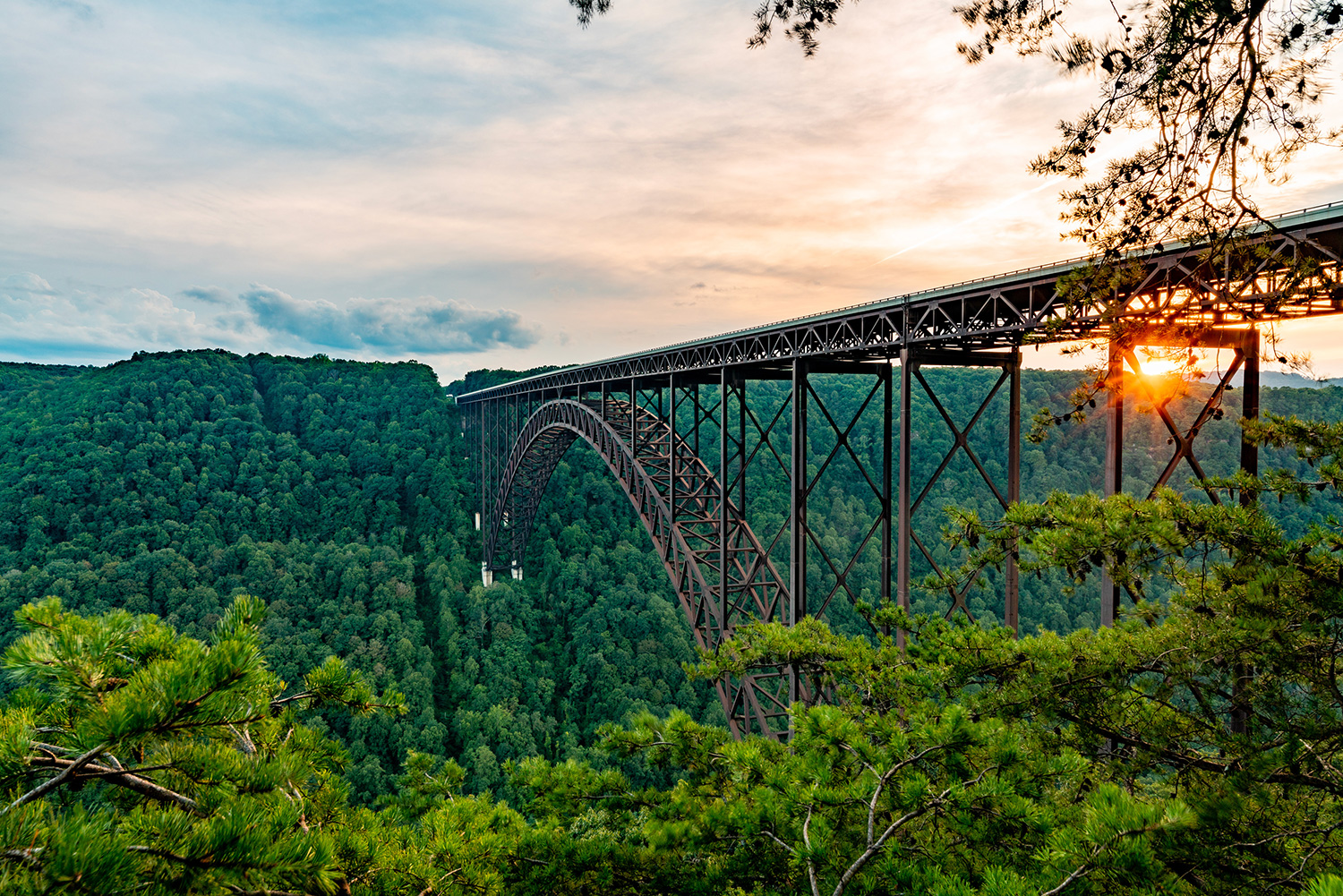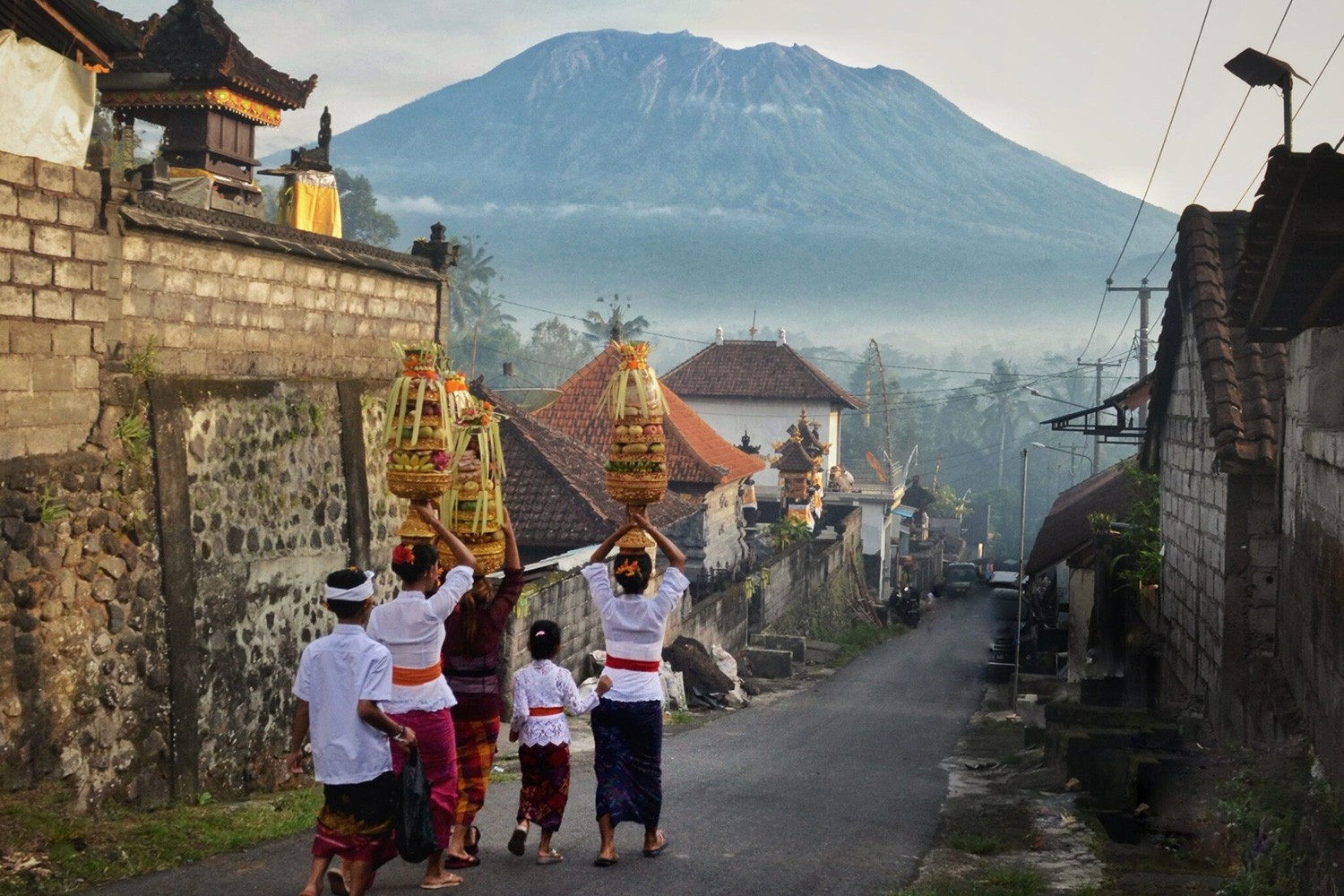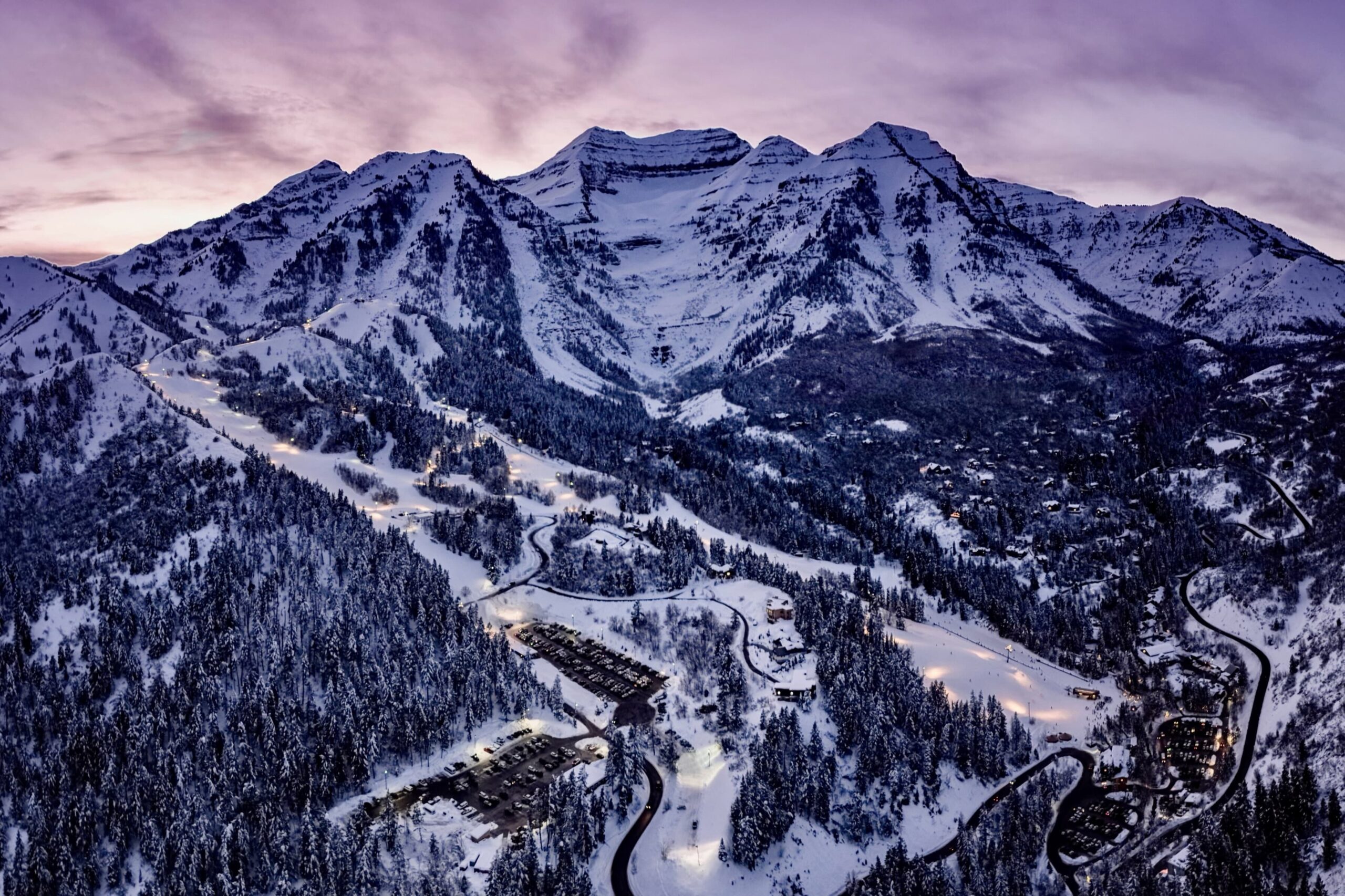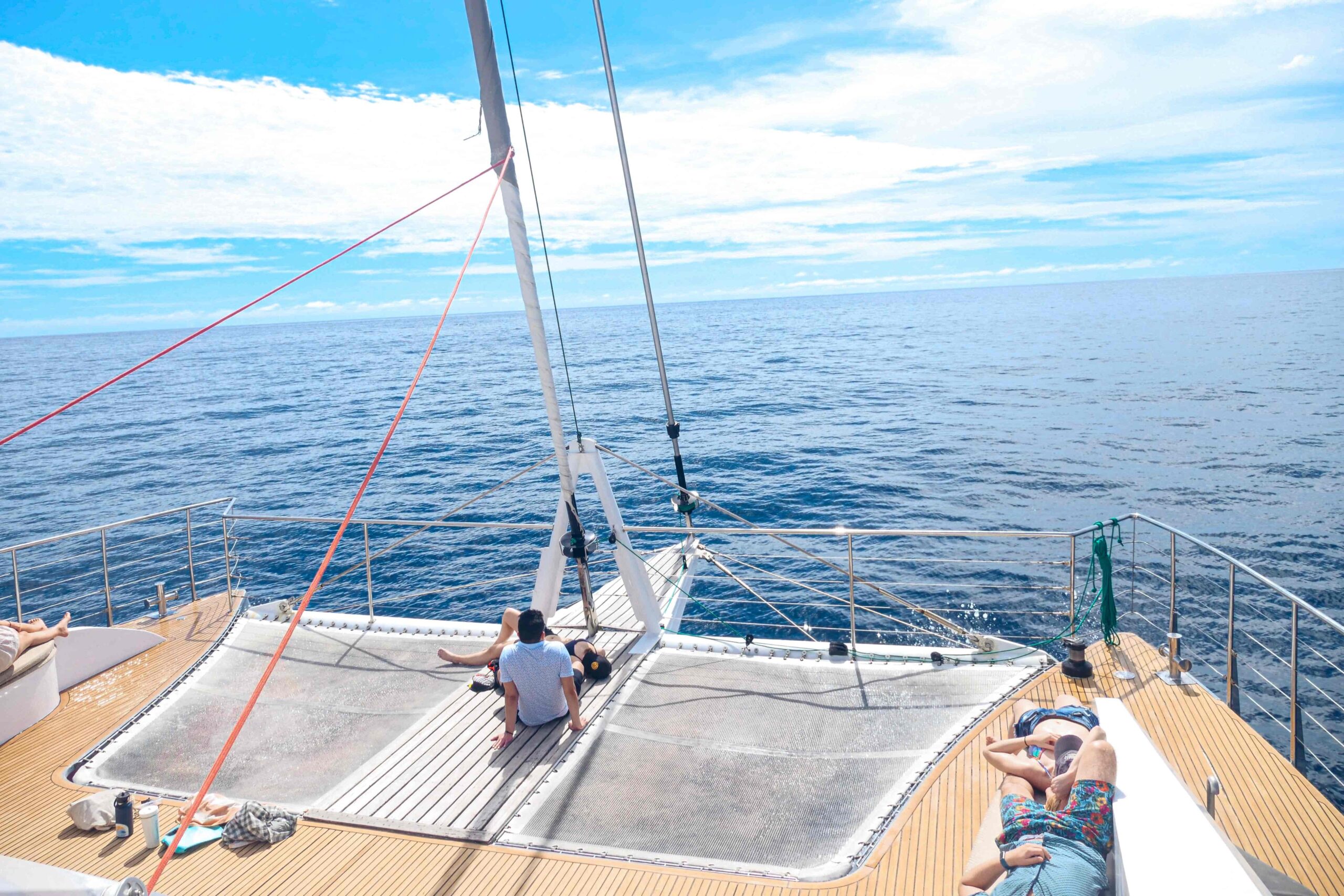NORTH STARS:
Wildlife Ecosystems
Community Support
Heritage Value
“The story of Tacugama is one of real hope in a country that usually only gets negative press.”
Sierra Leone is losing its forests. The country has lost an estimated 35% of its forest cover since 2000 and analysis shows that more than 80% of the region’s forests have vanished. Like the forests of its neighbors in West and Central Africa, Sierra Leone’s chimpanzee habitats are shrinking and with it, their numbers. In the 1970s, there were around 20,000 critically endangered western chimpanzees in Sierra Leone. By 2008 only 5,500 were left. Some were pushed out of their natural habitats to make way for agriculture, logging, and the development of roads and other infrastructure. Others fell victim to hunters or were trafficked as illegal pets. Population growth has gone hand in hand with the rise in both the bushmeat trade and the pet trade. Chimpanzees are expensive pieces of meat on the black market, and babies too small to eat, often get sold as pets. In the midst of this gloomy outlook, however, Tacugama Chimpanzee Sanctuary has become a lifeline for these threatened animals by working hard to save both chimpanzees and their vital habitat.
Inland from the capital city Freetown, the Western Area Peninsula National Park is a narrow chain of hills, 23 miles long and 8.6 miles wide. It occupies the heart of the Freetown peninsula, boasting pristine rainforest, mountainous terrain, idyllic waterfalls, and the Tacugama Chimpanzee Sanctuary. Despite its beauty and importance, the park is under threat. Once almost 44, 500 acres, the National Park sits in a wedge of forest hemmed in by the country’s capital. This wedge is shrinking fast, and once lost, it will be impossible to get back. Satellite imagery analysis shows the park has lost a quarter of its forest since 2016 and as the forest shrinks, the number of orphaned chimps at Tacugama expands.
Rewind 36 years. In 1988, Bala and Sharmila Amarasekaran were driving through the Sierra Leonean countryside, around 155 miles from Freetown. Passing through a village, they saw an emaciated orphaned chimpanzee tied to a tree as a pet. They felt they had no choice.
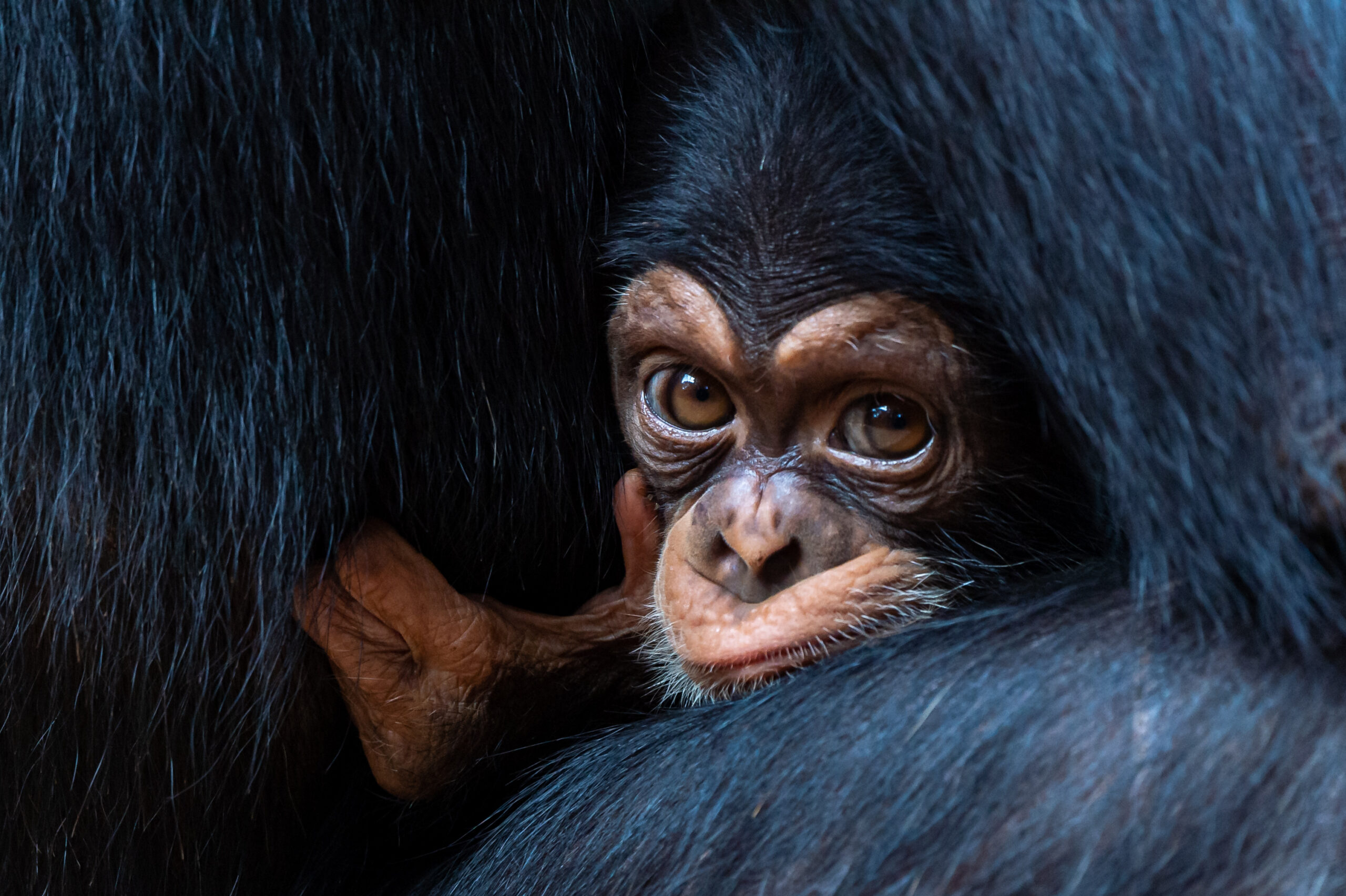
Baby chimp. Courtesy of Renato Granieri..
“That first moment of the chimp gazing up at us and hugging us, my wife and I were really moved. We knew if we left this little guy behind, he would die.”
They paid $20 for him and named him Bruno. What started as a one off mercy mission, soon expanded. One chimp became seven, all housed in a makeshift shelter in the garden of their Freetown home. In dire need of space, Bala and Sharmila campaigned for six years for permission to set up a reserve within the Western Area Peninsula National Park. Finally, in 1995, the 24 acre Tacugama Chimpanzee Sanctuary was born.
As news of the sanctuary spread, so too did reports of more captive chimps in Freetown. Some were surrendered to the sanctuary, while others were confiscated under the provisions of the Wildlife Conservation Act. For the next two years, chimps continued to be rescued from desperate situations and by 1997 the sanctuary housed 24 animals. Some bore the physical scars of bush snares or mistreatment, with missing hands or gnarled scars from deep lacerations. Others exhibited mental scars from growing up without mothers, or displayed a deep mistrust of humans. Tacugama became a haven for those chimpanzees, providing them with a second chance and a life of peace and security.
Along the way, the legend of Bala grew in Sierra Leone. He managed Tacugama through the country’s brutal 11 year civil war and military coups, as well as the devastating Ebola and Covid outbreaks. All the while pushing chimps into the national consciousness and lobbying for the primate to become the official national animal. In 2019, after primatologist Jane Goodall visited the sanctuary, the chimpanzee earned status as Sierra Leone’s national animal becoming the new face of tourism.
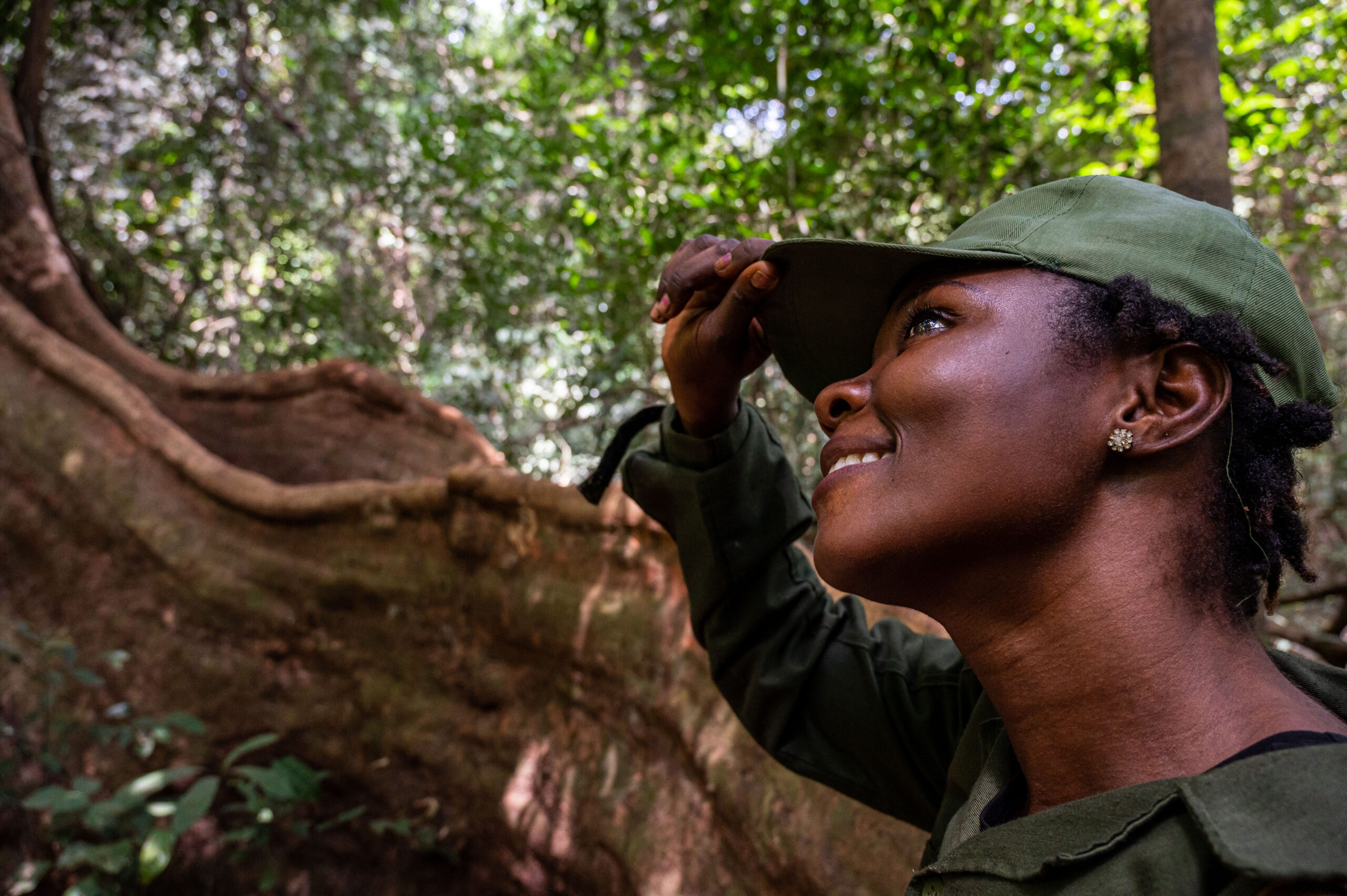
One of the Tacugama Team.Courtesy of Renato Granieri.
It was a celebratory moment for Tacugama. “This is great for us,” says Aram Kazandjian, Tacugama’s development manager, “the government prioritizes chimp protection. Being the national animal means it’s prohibited to kill, sell, eat. and keep them at home. We have a moral obligation to protect chimpanzees – they share 98.6% of our DNA.” But as Bala Amasekaran says, this is not the end of the battle. “It took us 25 years to get them declared the national animal. But now it’s about taking pride in that and seeing how we can carry this legacy forward and protect the species,” he says.
Recently, Tacugama’s work has evolved. Beyond housing, feeding and rehabilitating 119 orphaned animals, Tacugama supports ecotourism and other projects in rural areas, projects to prevent wild chimpanzees from ending up at the sanctuary. Encouraging local communities to buy into chimpanzee protection takes patience and an understanding of the economic pressures they face – for people who are struggling to feed their families and send their kids to school, conservation is more often than not, a luxury they can’t afford.
Despite Tacugama’s many successes, forest felling and bushmeat hunting remain the greatest threats. A recent arrival at the nursery was rescued near the park with gunshot wounds in the head and chest, likely hit by stray bullets aimed at his mother. The nursery currently has 39 infants. “We’re taking in rescues at an alarming rate. In 2022, we rescued ten and all are babies,” says Aram. Since 1995, Tacugama has rescued and rehabilitated around 200 western chimpanzees. Sadly, these rescued chimps are a symbol of the collapse the species still faces. “Scientists have proven that every time a chimp lands in a sanctuary, likely 8 to 10 will have died in the wild. So, if you look at the 119 or so chimps here now, they probably represent 1,000 that died,” Bala says.
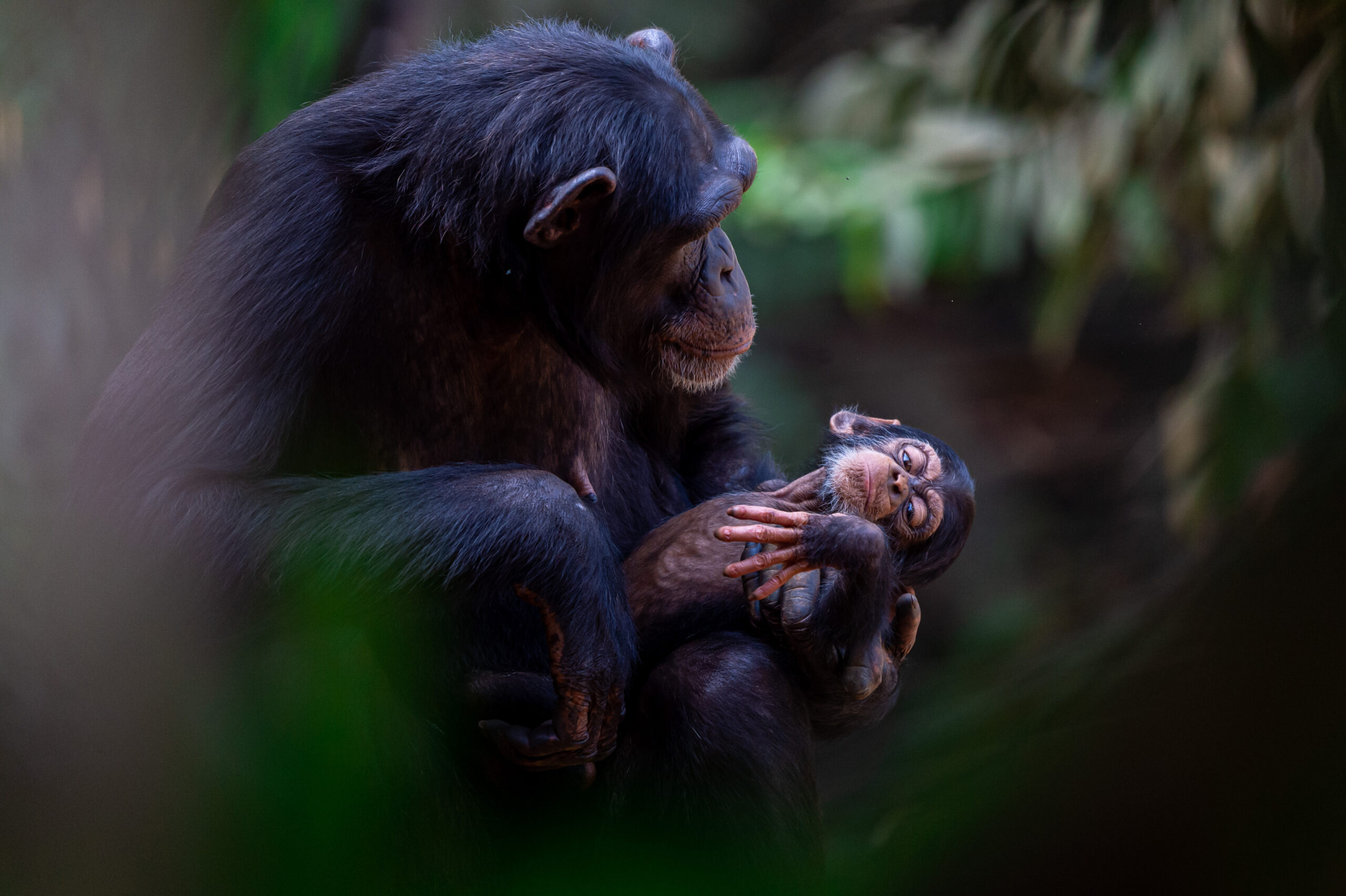
Babies are often left orphaned after mothers are killed. Courtesy of Renato Granieri.
Tacugama has been so successful at what they do, they’ve been asked by the Sierra Leonean government to collaborate and help manage two additional National Parks – adding Outamba Kilimi National Park and Loma Mountains National Park to their portfolio. In Moyamba in the south, 80,000 trees have been planted, connecting 5 patches of fragmented forest, creating the country’s first wildlife corridor and restoring a natural habitat for wild chimps. An additional 70,000 trees have been planted in a degraded area of Loma Mountains NP for the same reason, with 90,000 cash crops like cashew, coffee, and cocoa being planted in buffer areas to provide income for local communities. This year will also see 90,000 trees being planted in Outamba Kilimi NP.
Part shelter, part educational facility, and part tourist attraction, Tacugama Chimpanzee Sanctuary attracts visitors from across the world. A 30-minute drive from Freetown, the passionate and committed staff offer twice-daily tours of the sanctuary during which visitors can observe the nursery or get a glimpse of older chimps in the sanctuary’s larger forested enclosures. Tacugama offers several eco-lodges for visitors to spend the night.
The story of Tacugama is one of real hope in a country that usually gets negative press. Sierra Leone has a long list of urgent needs, and caring for young chimpanzees doesn’t land at the top. While the odds have seemed overwhelming at times, for nearly 30 years the small but committed team at Tacugama Chimpanzee Sanctuary has been trying to fill that gap. In a fitting serendipity, a picture of Bala and Sharmila’s first rescue, Bruno, is now on the national passport.
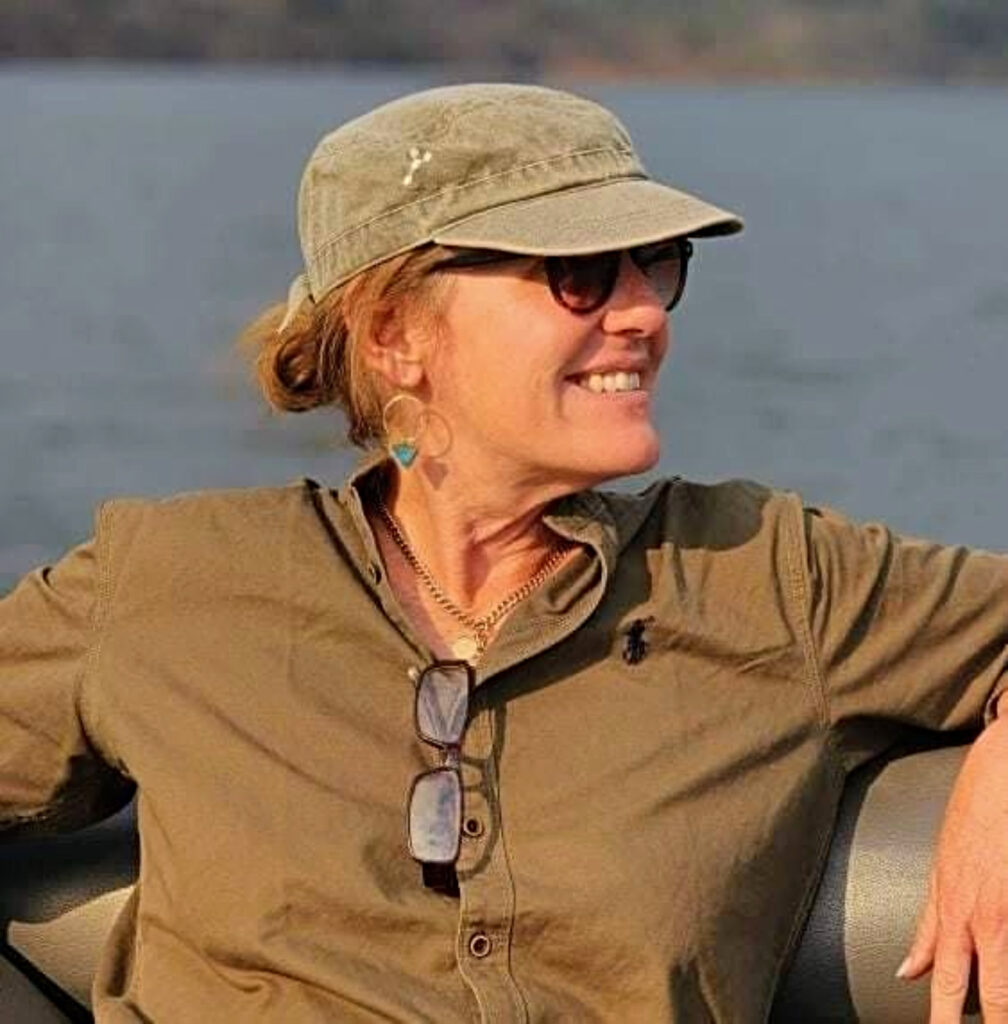
Travel writer, mountain guide, yoga teacher, trail runner and mother, Sarah Kingdom was born and brought up in Sydney, Australia. Coming to Africa at 21 she fell in love with the continent and stayed. Sarah guides on Kilimanjaro several times a year, and has lost count of how many times she has stood on the roof of Africa. She has climbed and guided around the world and now spends most of her time visiting remote places in Africa. When she is not traveling she runs a cattle ranch in Zambia with her husband. Follow Sarah on IG @sarah_kingdom_travels.
North Stars: Community Support, Heritage Value, Wildlife Ecosystems


